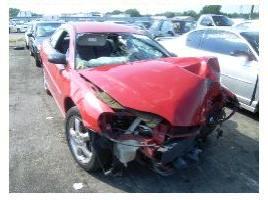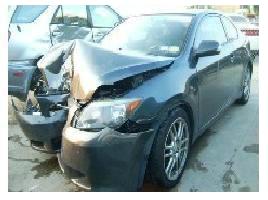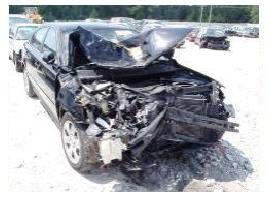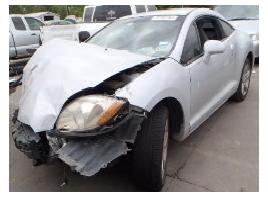Ask an Attorney a Question for FREE!
I Want My Car Totaled
Part II

Getting your car totaled could be an uphill battle. The insurance company and the claim adjuster will be ready to argue with you.
After looking over the repair estimate and asking for a teardown (see: car totaled part I), the next step is to point out the rental cost the insurance company will have to pay while the car is being fixed.
This is one of those rare occasions where the short rental allowance (three days or less) can benefit you. If fixing the car is going to take 25 days, then the insurance company must pay for 25 days of rental.
However, if the car is a total loss, then the carrier will only be responsible for three or four days, depending on the circumstances and your state law. In many occasions, the rental expense alone can push them to declare the car totaled.
Many adjusters include the rental expense in their estimation. Nevertheless, many of them miscalculate your rental (they will give you the lowest level they can find).

Insurance companies are all about money (they are a business, a very profitable one). They want to minimize their losses as much as possible.
They will not say this to you, but it is very evident that this is what they always have in mind. If you show them that “financially speaking,” having the car fixed will end up costing them more, they will probably give you what you want.
Pointing out the shipping or freight cost of parts could move that estimate closer and closer to the total loss threshold.
Making sure the adjuster accounts for everything is well within your rights.
Remember that your policy is your asset (like a bank account) and you have control over when and how payments are made. Be vigilant and make the insurance adjuster follow the rules.
The next step is to apply pressure on the insurance company. A letter asking for a “letter of guarantee” will do just that.

A letter of guarantee is a document wherein the insurance company (or body shop) guarantees the repairs. Insurance companies do not like to put warranties in writing, so they will tell you to seek this directly from the body shop.
Do not allow that. The only reason the car is being fixed is because the insurance company feels that the car can be fixed.
The insurance carrier needs to provide you with the assurance that the car will be fixed to your satisfaction. The last step is to research your state laws regarding diminished value and/or diminution of value claims.
If the car is not totaled, then its value will never be the same. In some states, your insurance company will owe you this.
Remember, your Vehicle Identification Number (VIN) will be reported to Carfax after ANY accident.
This will become public record. Dealers and private parties will negotiate you down for having a wrecked car. Even if the car is fixed, you will still have purely economic damages.
Some states do allow for first party diminished value claims, however you can still make this claim if you are seeking coverage under Uninsured Motorist Property Damage or if you are making this claim against the insurance company of the responsible party (a third party claim).

Many insurance adjusters will tell you that this claim is not allowed in their state. All states allow third party diminished value claims. Some states allow first party diminished value claim.
Double check what your adjuster is telling you by contacting the office of the insurance commissioner or the department of insurance of your state.
The insurance company will “get the point.”
They will know that they are dealing with a difficult and educated consumer who will not let them just fix the car. The totaled car will not be fixed because it will be too much hassle to deal with you.
|
For a Free Review of Your Case
Please Call (866) 878-2432 |


